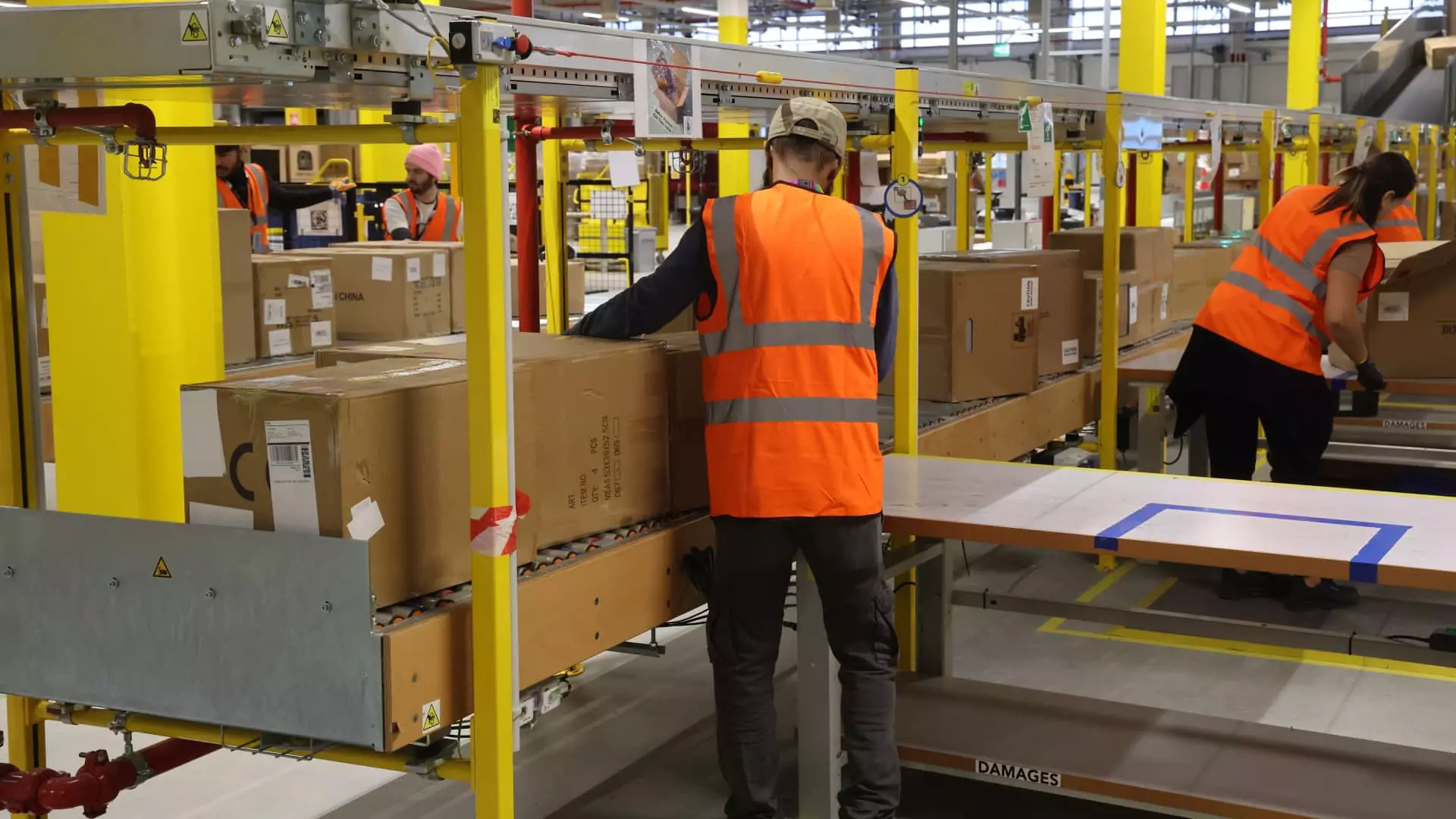Amazon’s announcement of reaching a staggering milestone—its one millionth robot—sounds like a modern marvel, signaling relentless innovation and efficiency. Yet, beneath the glossy veneer of progress lies an unsettling reality: the erosion of human employment and the hollow promises of future prosperity. These advancements, rather than heralding a brighter future, expose the contradictions of a society that touts technological growth while neglecting the human costs involved. Celebrating the billion-dollar investment in automation risks ignoring the poignant loss of jobs, economic stability, and the dignity of work for countless individuals.
Automation’s Double-Edged Sword
The deployment of such an extensive robot fleet—integrated with a sophisticated AI model—aims to optimize logistics, reduce costs, and speed up deliveries. It’s presented as a triumph of innovation, but its implications are darker upon closer reflection. AI-driven robots, particularly those capable of heavy lifting and autonomous navigation, threaten to displace millions in warehouse and manufacturing roles. Amazon’s claim that these robots create “new opportunities” is, at best, naïve optimism masked by corporate spin. The reality is that these “opportunities” are often reconstructive, reshaping the job landscape into one where human workers are relegated to ancillary roles, increasingly redundant and disposable.
The Misleading Rhetoric of Job Creation
While Amazon’s executives trumpet the creation of roles in maintenance, engineering, and technical skills, the scale and nature of job loss outpace these new opportunities. The company’s own hiring of 30% more staff at its advanced fulfillment center might be a piecemeal attempt to counterbalance automation’s negative impact, but it hardly offsets the broader trend of layoffs and workforce reduction. High-profile layoffs across the tech industry—amounting to well over 150,000 job cuts in recent years—highlight an undeniable pivot: AI and automation are not merely augmenting human labor, but replacing it wholesale.
A Society on the Brink of Dehumanization
This transition signifies more than just economic shifts; it signals a societal danger of dehumanization and deepening inequality. AI and robotics are often lauded as tools of progress, yet their deployment fundamentally alters the social fabric. The promise of enhanced productivity is overshadowed by the increasing precarity of the working class, many of whom face uncertain futures or unemployment altogether. It is disingenuous for corporate leaders and policymakers to portray this as “progress” when, in truth, it often signifies a retreat from societal responsibility to protect livelihoods.
The Paradox of Innovation and Ethical Oversight
The contradiction at the core of Amazon’s automation strategy lies in the uncritical celebration of technological advances alongside a dismissive attitude towards their human toll. As AI models like “DeepFleet” are touted for decreasing travel time and increasing efficiency, no sincere effort is made to address the economic dislocation caused. Instead, there’s a disturbing tendency to frame automation as an inevitable tide—one that will ultimately benefit all, despite mounting evidence to the contrary.
A Call for Center-Rooted Responsibility
From a center-wing liberal perspective, it’s clear that a more nuanced approach is necessary—one that recognizes the potential of AI and robotics while simultaneously safeguarding workers’ rights and economic security. Policymakers, corporations, and society at large must resist the allure of unchecked automation and instead foster a balanced innovation model. This should involve investing in retraining programs, ensuring equitable access to new economic opportunities, and establishing safeguards that protect vulnerable workers from being discarded in service of corporate efficiency.
Reconsidering Progress in a Human-Centric Society
The relentless march of automation has obscured the fundamental question: what kind of society do we want to build? Is progress solely defined by technological milestones, or should it be measured in the well-being and dignity of our workforce? If automation continues to displace jobs without adequate measures for transition, chaos and inequality are inevitable. True progress requires a moral compass—one that prioritizes human needs over corporate profits and recognizes that technological advancement must serve humanity, not diminish it.


Leave a Reply